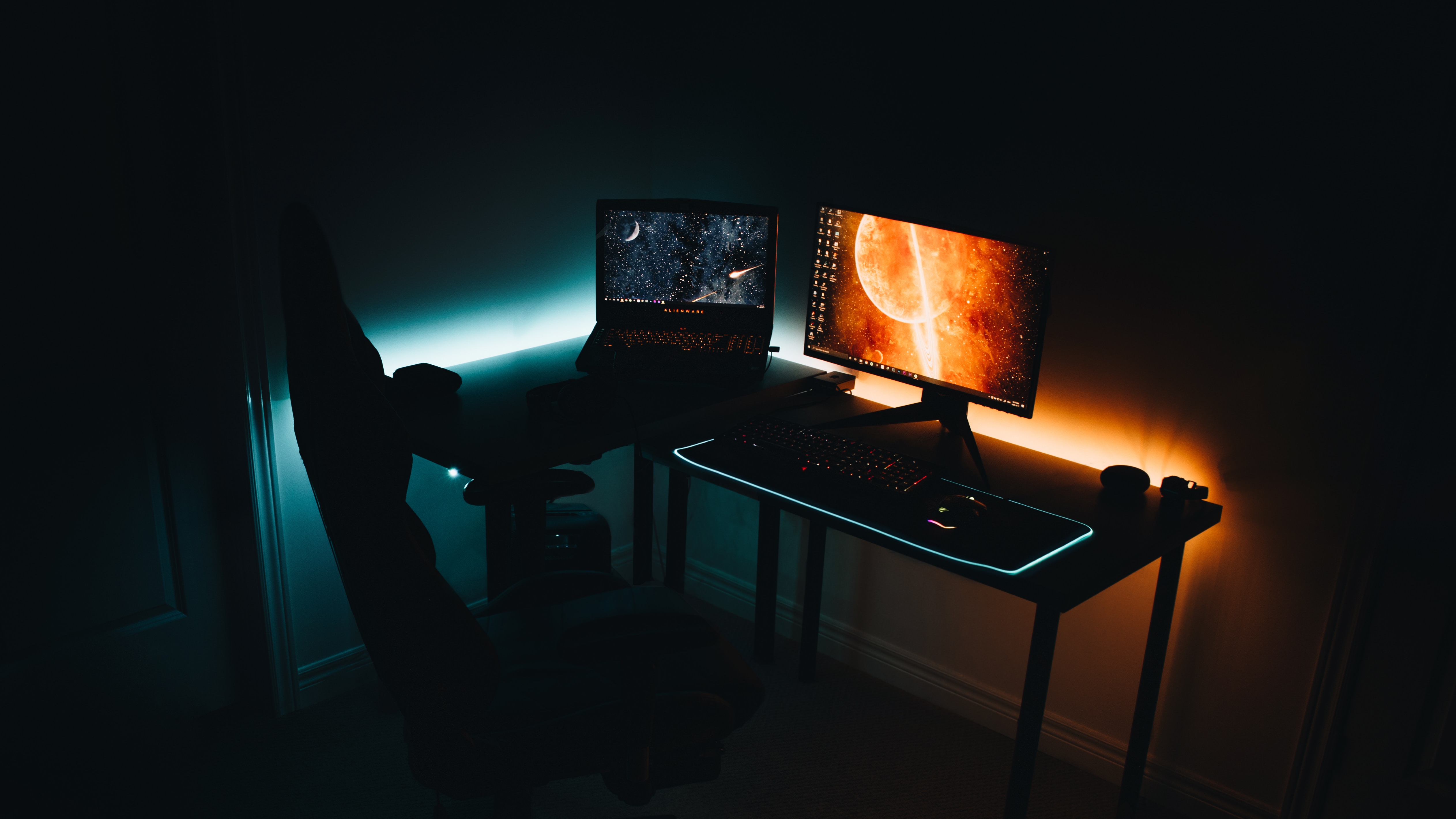If you plan on starting gaming on your computer or you want to start editing videos and running high-end design software on them, there are some things you might be curious about.
What is meant by computer efficiency? How does FPS work and what does it have to do with computer performance?
In this article, I am going to talk about what FPS is, how it works, how can a graphics card affect it, and how processors work on the FPS of a game or a render. I am also going to talk about computer performance and its dependence on RAM.
So, stick around and read this article till the end.
Does Graphics Card Affect FPS?
Yes. Graphics cards contain algorithms and technology capable of producing graphics on the screen in real-time as you’re dealing with computer graphics. Graphics cards have been around for a long time now.
Graphics card directly affects the FPS of a game or design because it increases the efficiency at which the graphics are being displayed on the screen, which basically means the frames per second of a particular graphic.
Graphics cards are directly related to FPS. If a graphics card is not as technologically advanced and high-performance, it will not be able to produce graphics onto the screen in enough time, lowering the frames per second count and ultimately making the gaming or graphical experience simply less engaging.
Now, such high quality, high power consumption, technologically advanced graphics cards are available in the market that you can even expect a performance in games of over 200fps, which is incredible when you think about the FPS being displayed on the screen.
What is the FPS?
FPS or frames per second is the unit at which consecutive images being displayed on the screen are perceived. The collection of images is known as the frame rate.
The more consecutive images being displayed, the better the frame rate will be. FPS can also be considered Hertz and frame rates are also known as frame frequencies.
The most common frame rate is around 30fps. The eye can perceive frames distinctly even if the FPS is around 12-20. To a human eye, 24fps is when a video seems like a motion picture and starts getting smooth.
However, 50-60fps is the most stable motion of frames being displayed on a computer screen. But nowadays, there are also higher frame rates than 60 which provide slightly more smoothness and stability depending upon how high the frame count is.
If you’re wondering what is the use of FPS in computers. Well, you might already have seen it but may have not known about it before. Frame rate is incredibly important in any kind of motion video and graphics.
If you use Alienware monitor for gaming, check Best Webcams For Alienware.
How Does FPS Relate to Gaming and Streaming?
Well, everything about games and video streaming is related to frames per second. How? Let’s dig deeper into how the frame rate intertwines with gaming and streaming.
Computer Graphics FPS
When you’re dealing with high-quality design tools and even playing games with computer graphics, each of the graphics is going to be displayed in frames per second.
The better the fps, the smoother the motion, and the more realistic the experience is going to be.
Video and Film FPS
You may have been watching a video on YouTube before you came to read this article. Well, any video or film or motion picture that you watch also is recorded and displayed in the form of frames per second.
The better the frame rate of the camera, the smoother the recording and the more stable the video will be to your eye, which is obviously the end goal.
Do Processors Affect FPS?
As the name CPU suggests, the main processing of each render and all the calculations of the graphics is processed by the processor, so yes, CPUs definitely affect the FPS that you might see in a video game or on a video being played on your device.
The more CPU cores, the processing work will be divided into more parts and the efficiency of the FPS being displayed on the screen will increase significantly.
Similarly, fewer cores and threads may lead to a worse FPS performance which can be detrimental to the computer experience.
That is why the processor speed is important especially if you are using an ultrawide screen for gaming or programming.
What Does Computer Speed Depend Upon?
When you think about computer speed, you think about the calculations, the instructions, the processing, and the multitasking it can perform at a single time. Well, all of these measures of efficiency lead to two main components of the computer system.
- CPU
- RAM
Let’s take a look at how both of these components affect the performance, speed, and efficiency of a computer system, so you can make the right choices in your next PC build.
Processor Performance
Each and every process execution depends upon the processor. A processor contains many individual components like caches, cores, threads to make the processes efficient and quick to execute.
Older generation processors, which contain less core and thread count, aren’t able to process multiple operations or heavy-duty operations simultaneously. For that reason, multiple cores, and multi-threading must be available.
That’s why if you’re looking for peak instruction per clock and process execution which basically means high-speed performance, you should definitely make sure you’re equipped with the best quality AMD or Intel processor available in the market according to your budget.
RAM Performance
Multi-tasking, multi-processing, and utilizing different software and applications at the same time are all dependent on the RAM. The RAM is where an executed program is stored as it is being processed by the CPU.
That is why the CPU and RAM combo needs to be perfect and efficient in order to make the whole computer efficient.
A great RAM and CPU combo can make editing, rendering and other activities much easier and quicker than a bad combo of these components might do.
The faster the RAM is going to be, the quicker the information transfer is going to be in executing programs. Especially in games nowadays, the size and the speed of the RAMs are required to be really high in order to have smooth and stutter-free gameplay.
And this is one of reasons why dual monitors may slow down your computer.
Does adding RAM make your computer faster?
Most definitely it does.
For gaming and other purposes, the most adequate and suitable RAM size is 16GB as of now. In the past, 256MBs to 2GB used to be enough. It really shows how quickly computers are growing and advancing.
With 16GB RAM, you can execute so many tasks together. You can play audio, play games and browse the internet altogether without breaking a sweat in the computer’s memory and that’s exactly the type of performance we need.
The below links are affiliate links. I may earn a commission when you purchase through them.
What is Good RAM Speed?
RAM sizes are extremely important, but one thing that has been overlooked by many even though it is supremely important is the RAM speed. RAM speed is measured in Mhz. There are different variants of RAM speed available in the market right now.
In DDR3 RAM modules, the top speed of a RAM reaches around 1600Mhz. However, in the more advanced DDR4 modules, there are many different speeds that you can choose from.
- 2133Mhz DDR4
- 2666Mhz DDR4
- 3000Mhz DDR4
- 3200Mhz DDR4
- 3600Mhz DDR4
As of now 3600Mhz is the fastest RAM speed, however, overclockability can allow you to increase the speed even up to 4000Mhz.
So, if you’re looking to build a system, you should definitely take a look at anywhere between the 3000Mhz RAM to the 3600Mhz RAM range to get the best performance and efficiency from your computer system.
Can Computers Keep Getting Faster?
Computer technology is a field that knows no bounds. In the past 25 years, there have been so many new technological advancements and products that have come out with so much difference between the older generations and the newer generations that you can say, there is no stopping computer evolution.
You might be thinking, can computers keep getting faster, no matter what, in the future? The simple answer to that is yes.
There is no stopping technology and its advancements. Whether we talk about CPU architecture or RAM speeds or hard disk spaces or SSD storages or anything else, it has been and it will keep growing as more and more knowledgeable minds get together.
So, as computer enthusiasts, we’re going to say, that you should always look forward to better and quicker technology which surpasses the older generation technology.
The bright minds at companies like Intel, AMD, Nvidia are always going to keep surprising you with what great products they can come up with. And the future holds a lot of surprises for tech enthusiasts, so be ready.
Final thoughts
If you’re looking for a great frame rate on your games and videos, making sure you’re using a top of the line CPU and a high-end GPU is important.
Not only will that improve your FPS by a long shot but also make the overall experience much smoother and better.
So, make sure you choose the right products and have an amazing time using your computer.


